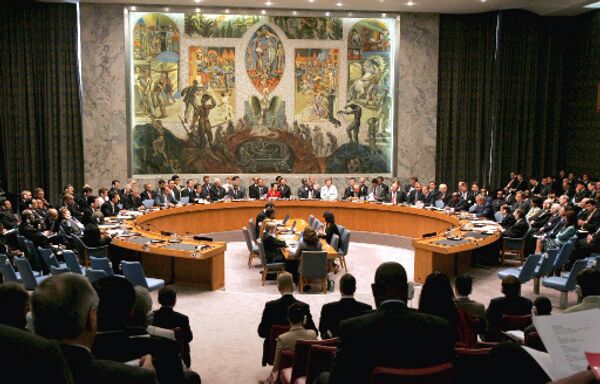UNITED NATIONS, October 10 (RIA Novosti) - The UN Security Council on Friday unanimously agreed to a condemning press statement, containing threats of targeted sanctions use as a UN peacekeeper from Pakistan was killed in the Central African Republic (CAR).
The statement “condemned in the strongest terms the attack against a convoy of the United Nations Multidimensional Integrated Stabilization Mission in the Central African Republic [MINUSCA] on October 9 in Bangui, in which one Pakistani peacekeeper was killed and several other peacekeepers from Pakistan and Bangladesh were severely injured.”
Threatening targeted sanctions, the members of the Security Council “reiterated their resolve in line with their decision... to apply the sanctions measures... of the resolution to individuals and entities involved in the planning, directing, sponsoring, or conducting attacks against the UN Mission as well as other security presences in the CAR.”
Security Council members reiterated “their support for MINUSCA to assist the Transitional Authorities, which bear the primary responsibility to protect the population, and the people of the Central African Republic" in their efforts to stabilize the situation in the country.
The members of the Security Council also condemned all attacks and provocations against MINUSCA by armed groups. Earlier the same day, UN Secretary General Ban Ki-moon said he was "appalled" by the deadly attack on the UN convoy.
Violence in the African republic escalated in December 2013, when clashes between Islamist militants from Seleka rebel group and Christian activists confronting them swept Bangui. According to UN estimates, up to one million people were forced to flee their homes with over a thousand being killed since the conflict started.
Before September 15, peacekeeping in CAR was done by the African-led International Support Mission to the Central African Republic (MISCA) mission, which was largely “re-hatted” into MINUSCA. The new UN-led mission, according to Ban Ki-moon's September statement, is estimated to include 6,500 troops.

